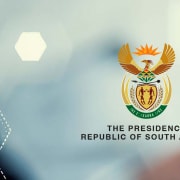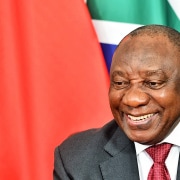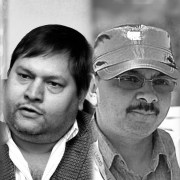|
Getting your Trinity Audio player ready...
|
Image: WIkimedia Commons
It was a time of one hit and one miss in the courts recently for former state security minister Bongani Bongo, who has been embroiled in corruption cases for several years.
He told journalists on Friday 10 May that he harboured no bitterness after he was discharged, along with seven co-accused, in one case of money laundering and corruption against him, by the Nelspruit Commercial Crimes Court. In the meantime, however, he faces a retrial in another corruption case, following an order of the Supreme Court of Appeal (SCA) relating to the 2017 case in which he is accused of offering a bribe relating to the Eskom inquiry in Parliament.
Bongo and his seven co-accused faced corruption and money laundering charges relating to alleged fraudulent dealings involving land sales from when he worked in the Mpumalanga Human Settlements department as its head of legal services, prior to becoming a member of Parliament, and later Cabinet minister.
News24 reports that the discharges came about after the accused had applied for them in terms of Section 174 of the Criminal Procedure Act, which discharge was granted. In terms of the act, the court may choose to discharge an accused person at the close of the State’s case if it is of the opinion that there is insufficient evidence for a conviction. While the discharge applies to the eight, as many as nine more accused – including companies – will continue with the trial when it resumes in August.
Bongo and the others were first charged around 2014 over the land dealings – where they allegedly inflated the costs of land sold to two Mpumalanga municipalities – worth around R74-million. The National Prosecuting Authority (NPA) says it will appeal the decision of the court.
In the other case still hanging over his head, Bongo was initially charged for allegedly attempting to bribe the evidence leader in Parliament’s Eskom inquiry, Ntuthuzelo Vanara, in 2017. He pled not guilty in the case, which was before the Western Cape High Court and presided over by the now-impeached judge president John Hlophe. Just as in the Mpumalanga case, there too Bongo applied for a discharge, which was granted by Hlophe in February 2021. The NPA then appealed the discharge with the SCA, leading to the now development of the current SCA order.
Bongo is no stranger to controversy. He was positioned in one of the most strategic roles in Cabinet during the Jacob Zuma administration in 2017, and was one of the surprising announcements of the October Cabinet reshuffle, the second of that year. He became state security minister, heading up the State Security Agency (SSA) that would later be dissolved and repositioned within the presidency upon the arrival of Cyril Ramaphosa in office.
The SSA and its leadership, including Bongo, would be the subject of the 2018 High-Level Review Panel chaired by another former cabinet minister, Sydney Mufamadi, which found that ministers in that portfolio had crossed their boundaries and gotten involved in operational matters of the intelligence sector. Bongo has also served as a member of Parliament, having been on the home affairs portfolio committee, as well as the ad hoc committees that were tasked with reviewing the feasibility to amending Section 25 of the Constitution, and the appointment of the public protector in 2018 and 2016, respectively.
Although his time in Cabinet was short-lived, having been one of the ministers fired by Ramaphosa in February 2018, his inclusion by the ANC in the party’s parliamentary list for the 2019 national elections was a shocker, given Bongo’s implication in the state capture commission that had begun its work the previous year. He was, however, removed from his position as chairperson of the home affairs portfolio committee in 2021 when the ANC caucus reshuffled chairs and whips, and subsequently suspended by the party pending the outcome of his corruption cases, owing to its step-aside rule.








